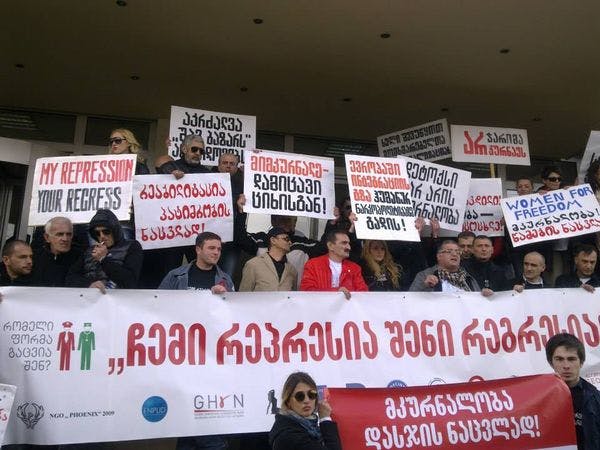Have we made it? Reflection on Georgian drug policy reforms
The summer of 2014 turned out to be politically hot for Georgian drug policy makers. Human rights activists, international experts, UN agencies and the government of Georgia came together for the first time to discuss the impact of drug policies on human rights in Georgia. And as that debate was not yet over, the Ministry of Health, Labour and Social Affairs of Georgia issued a decree on 11 August 2014 that reversed its own normative act dated from 2000.
The normative act, which obliged medical staff to notify the police in the cases of overdose, has claimed numerous deaths among Georgia’s drug user community and was part of the most brutal drug policy machinery in the region of Eastern Europe and Central Asia. It is due to these policies that many people who use drugs are languishing in prison without receiving any form of treatment or support. The country’s zero tolerance policy has failed tragically and caused the suffering of thousands of often innocent citizens in the country. ‘Street drug testing’ has had a decapitating effect on communities and haunted many. Discrimination, and the absence of a fair trial, proportionate sentencing, security and freedom and the right to life for drug users has often been stringent. Current drug policies in Georgia have also enabled the police to extort money from drug users and their families either in the form of plea bargaining or through blackmailing.
While a political battle among various ministers continues back home, those represented at the UN in first weeks of July echoed the possibility of a wind of change in the country’s drug policies. The Minister of Health at the UN Committee Elimination of all forms of Discrimination against Women and the Minister of Justice at the Human Rights Committee – while fully agreeing on the critics made by the civil society representatives – pledged to work with activists, researchers and experts to address the gaps in drug policy and bad practices in the implementation of the law.
New developments have also sought to address some of the issues experienced by people who use drugs. The Georgian Network of People who Use Drugs recently reported that the ‘new (decree of the Ministry of Health, 11 August 2014) order means that the lives of many people will be saved. And there is still a lot to do to address the overdose problem as part of bigger, repressive, punishment-oriented drug policy in general. Accordingly we will continue to use all forms of advocacy including campaigns, protests, negotiations and partnerships to ensure further positive changes to respond to the basic needs of people who use drugs in Georgia’.
Despite these positive developments, there continues to be mixed messages, which are symptomatic of Georgia’s bipolar drug policies, torn between the Ministry of Health and the Ministry of Internal Affairs. While the latter fears losing control of ‘operative’ information, the drug user registry, blackmailing, controlling and recruiting informants for ‘crime prevention’ purposes, the former is unable to mobilise and push for reform. Meanwhile, thousands are forced to undergo drug testing and are arrested in streets, people are deprived of liberty and personal security is at stake. Recent months’ demonstrations under the slogan ‘Beka is not a criminal’ displayed the existing tension between society, the authorities and different governmental institutions.
We are in autumn mode now, and it is time for harvesting political goods. For people who use drugs or who are affected by drug policies, this means the establishment of a balanced drug law and enforcement mechanism. A new energy for political advocacy is now in place and it is high time for promises to be materialised.
Topics
Regions
Related Profiles
- Eurasian Harm Reduction Network (EHRN)
